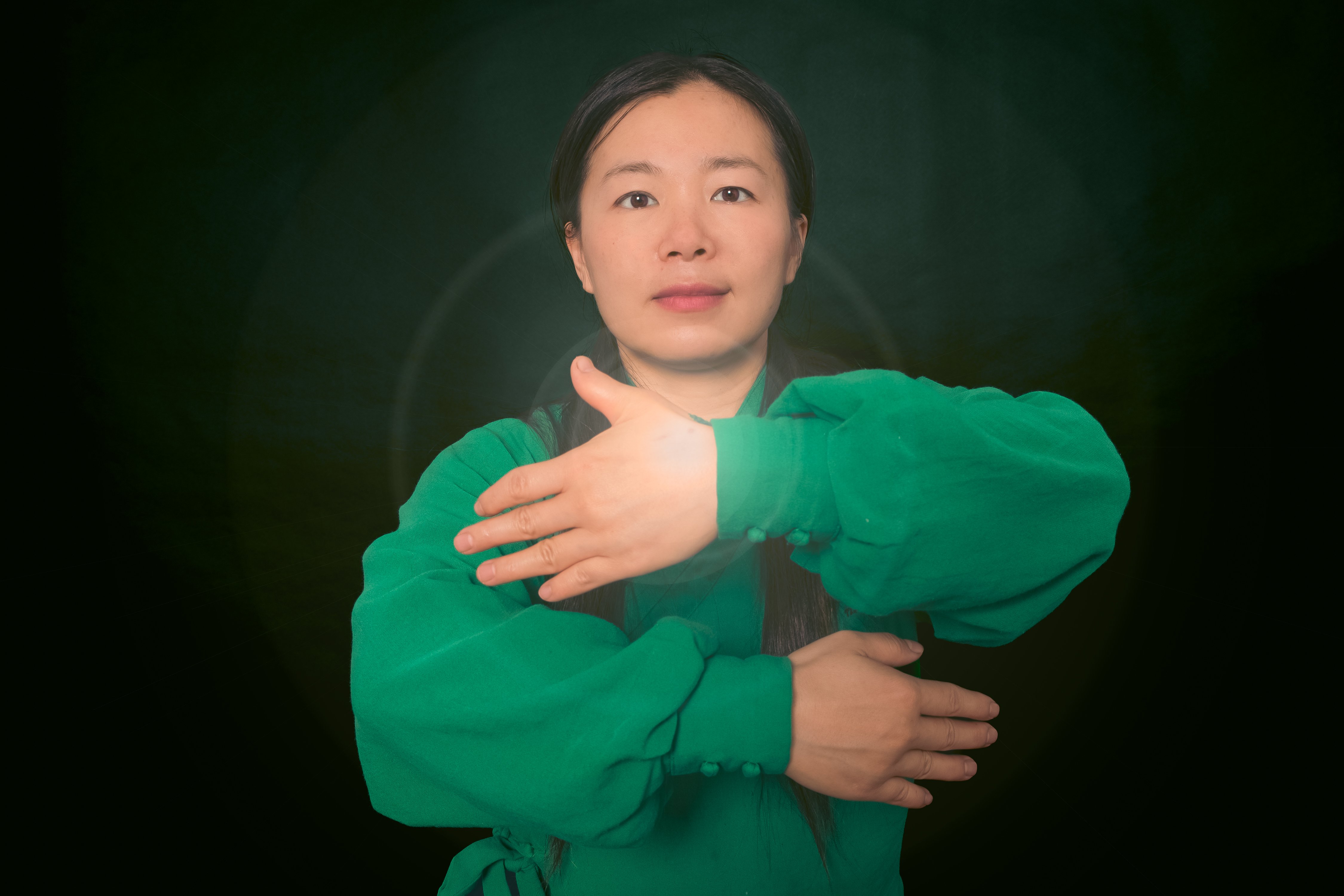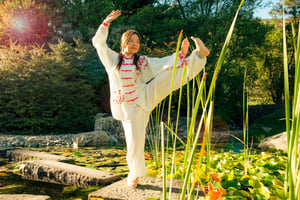Embark on a journey of self-discovery and rejuvenation at our "Flowing Vitality: Tai Chi & Qi Gong...
The Serect of Tai Chi: Internal Qi Gong Approach
You know how to do Tai Chi Forms, but if what you focus is the forms you might not practice Tai Chi. Tai Chi and Qi Gong go beyond just fancy moves. It is important to understand the core principles behind these practices to gain full benefits.

Tai Chi and Qi Gong belong to internal kongfu
Though Tai Chi is a martial art that can be used for self-defense, the founder, Master Zhang San Feng, did not create Tai Chi primarily for winning battles. Instead, Tai Chi is renowned for promoting longevity and body-mind health. In modern times, we rarely face life-threatening situations that require hunting or fighting. Instead, our enemies are modern diseases and illnesses, lack of vitality, isolation, and mental afflictions.Tai Chi incorporates forms from traditional martial arts, but what sets it apart is its Qi Gong approach. Qi Gong focuses on cultivating and balancing the body's vital energy, or Qi. As stated clearly in Tai Chi Quan Lun, Tai Chi is an internal kung fu and cannot be judged by external forms alone.

Connecting Mind, Body, and Spirit through Tai Chi
What is Qi Gong? It is the practice of harmonizing vital energy. How do you apply the Qi Gong method? Energy flows where your intention goes. Our minds have tremendous power in impacting the body's performance. Yoga Nidra is a common application that trains the body to relax by simply directing your attention to different parts of the body. Athletes use mind training to improve their performance, and hypnotists can help clients treat physical problems by addressing the mind. Tai Chi is often described as a moving meditation because of its Qi Gong approach—a deep connection between the mind, body, and spirit. Through slow and deliberate movements, we become more attuned to our body's needs and can respond to them with grace and ease. Tai Chi also helps us release tension and stress, promoting a sense of calm and relaxation.

Benefits of Practicing Tai Chi and Qi Gong
The benefits of practicing Tai Chi and Qi Gong are numerous and far-reaching. These practices can improve physical health, increase flexibility and balance, and enhance mental clarity and focus. Regular practice can also boost the immune system, reduce stress and anxiety, and improve overall well-being.
Tai Chi and Qi Gong are gentle on the joints and muscles, making them suitable for people of all ages and fitness levels. They can be practiced anywhere, without the need for special equipment. The slow and controlled movements promote relaxation and help to activate the body's natural healing mechanisms.
In addition to the physical benefits, Tai Chi and Qi Gong also have a profound effect on our mental and emotional well-being. The meditative aspect of these practices helps to calm the mind and reduce mental chatter. They promote a sense of inner peace and harmony, allowing us to navigate the challenges of life with greater ease and resilience.

Integrating Qi Gong Principles into Everyday Life
One of the key principles of Qi Gong is that everything we do can be Qi Gong. It is not limited to a specific routine or practice. We can infuse the peaceful energy of Qi Gong into every aspect of our lives, whether it is walking, cooking, or simply sitting quietly in meditation. We can approach each moment with mindfulness, relaxation, and harmony. This means being fully present and engaged in whatever we are doing, whether it is a Tai Chi routine or a mundane daily task. It is about bringing a sense of purpose and intention to each action, no matter how small.
My dharma friend and meditation teacher, Geshe Tachin, always says, "When you wake up in the morning, set your motivation by repeating three times: 'No matter what I am doing today, may my body, speech, and mind only benefit others.'" This too is Qi Gong. Why? Because Qi is in everything, nourishing life without any judgment. When we align with Qi, we want to benefit everyone and everything. The little 'me' disappears.
I also like to quote Zen Master Thich Nhat Hanh's mindful breakfast practice. He said "when I hold a piece of bread, I look at it, and sometimes I smile at it. The piece of bread is an ambassador of the cosmos offering nourishment and support. Looking deeply into the piece of bread, I see the sunshine, the clouds, the great earth. Without the sunshine, no wheat can grow. Without the clouds, there is no rain for the wheat to grow. Without the great earth, nothing can grow. That is why the piece of bread that I hold in my hand is a wonder of life. It is there for all of us. We have to be there for it.''

Tips for Starting Your Tai Chi and Qi Gong Journey
If you are new to Tai Chi and Qi Gong, here are some tips to help you get started on your journey:
1. Find a qualified instructor: It is important to learn the correct techniques and principles from a knowledgeable teacher. Look for someone with experience and expertise in Tai Chi and Qi Gong.
2. Start with short practice sessions: Begin with short practice sessions to gradually build your stamina and familiarity with the movements. It is better to practice for a few minutes every day than to have long, sporadic sessions.
3. Focus on your breath: Pay attention to your breath during the practice. Simply paying attention without delibrate control. Treat your breath like a new friend, each moment is new. Don't impose any task on it. Simply observe, with respect.
4. Listen to your body: Tai Chi and Qi Gong should be practiced at your own pace and within your comfort zone. Listen to your body and modify the movements if needed.Trust your body know what to do for its best.
5. Be patient and persistent: Tai Chi and Qi Gong are lifelong practices that require patience and persistence. Don't expect immediate results. Enjoy the journey and trust in the process of self-discovery and personal growth. The journey is the destination.
By following these tips, you can embark on a fulfilling Tai Chi and Qi Gong journey and experience the transformative power of these ancient practices.




